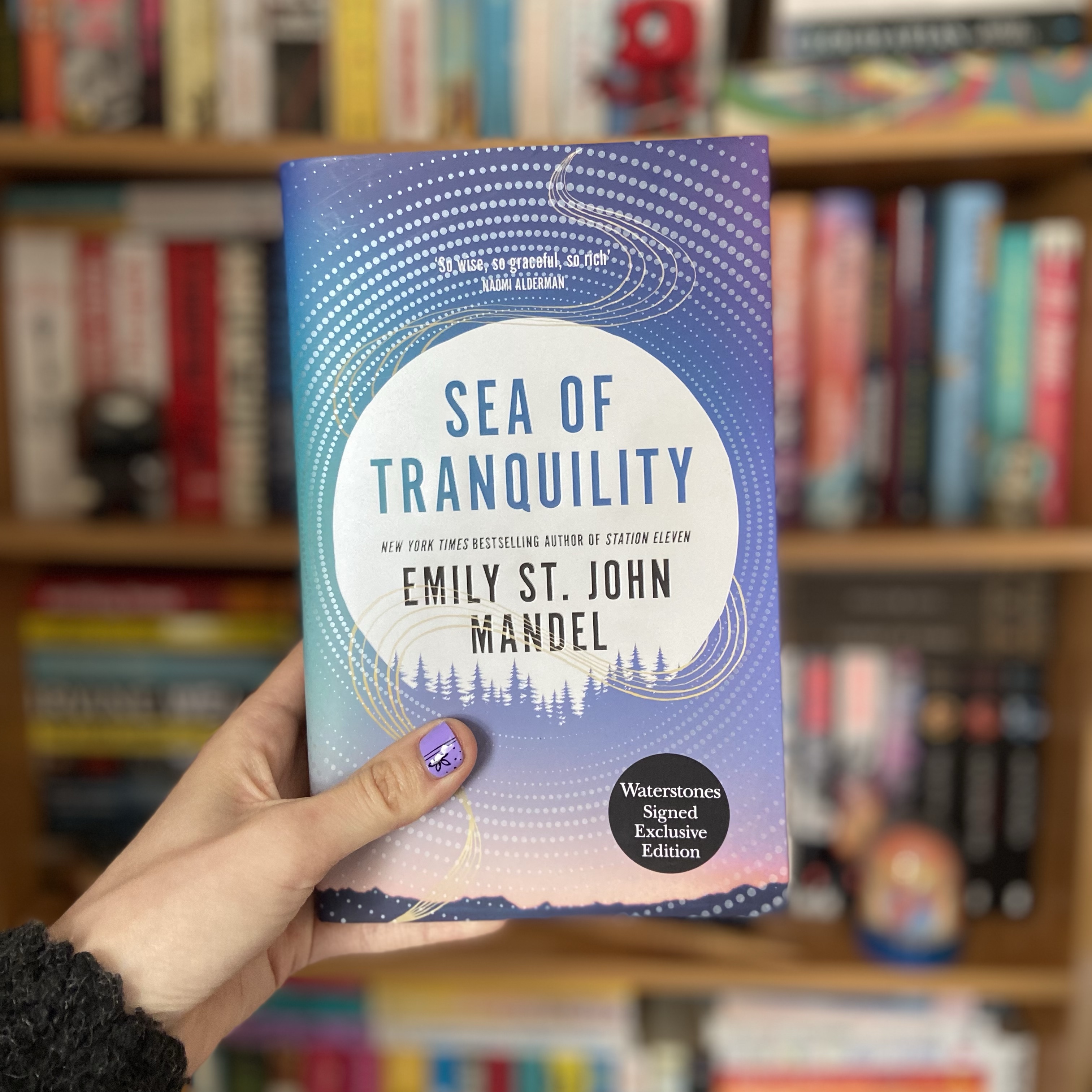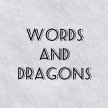
There is a chance that this book is perfect… at least perfect for me. I’ve never had such a positive feeling about a book that I have preordered before (and certainly not one I had signed). I am so glad that this one delivered everything I wanted and more. This book will hold a special place in my book collection (and my heart) for years to come.
I have previously read three Emily St. John Mandel books, and this one is probably my favourite. I was first introduced to her writing when I picked up The Glass Hotel on a whim and I started off strong. I found myself immersed in the plot and in love with the atmosphere. (Irrelevant sidenote: since reading this novel, I have come to the conclusion that I love stories about hotels. This is super niche, but one of my favourite comfort shows is Schitt’s Creek, I could talk about The Shining for years and years, and The Grand Budapest Hotel is an unforgettable film with an even more unforgettable soundtrack – it is basically the only film score I will rave about.) It is therefore no surprise that while Station Eleven is everyone else’s favourite Mandel novel, The Glass Hotel was mine. Until I read The Sea of Tranquility, which truly changed the game… or rocked the boat.
However, The Sea of Tranquility is perhaps not a novel for everyone. It is designed for an Emily St. John Mandel reader. In this novel, she essentially creates her own extended universe. However, the Mandel-universe differs from others like the MCU. Unlike these films, her novel is not a desperate attempt to make as much money as possible. In fact, Mandel’s decision to her unite her novels might have made them less profitable. Even though it can be read on its own, I wouldn’t recommend reading it without having read at least The Glass Hotel, and maybe even Station Eleven too. To appreciate the full complexity of the novel, you need to immerse yourself in her writing.
The Sea of Tranquility is almost impossible to describe. It is a novel that initially appears to have no protagonist. It starts much like Cloud Atlas. It includes vignettes that later connect to a more recognisable plot. While none of her novels are chronological, this novel has even less of a familiar structure. Like her other novels, The Sea of Tranquility follows multiple threads across time. Yet, in her other novels, these strands are plaited together by repeating characters. At first, The Sea of Tranquility feels completely unconnected, her reader cannot decipher why Mandel is choosing to tell these stories. It reads more like a book of incomplete short stories than a novel.
However, around the halfway mark, Mandel finally ties her disparate stories together through Gaspery-Jacques Roberts. As a time-traveller tasked with exploring a weird artistic loophole he unites the novel. At this point, the book became impossible to put down. I ravished the end of the book. I lived the dream of basking in the sunshine while reading a perfect novel. The atmosphere was beautiful and well, tranquil.
‘This is the strange lesson of living in a pandemic: life can be tranquil in the face of death’
Emily St. john Mandel
This does not mean that I did not enjoy the beginning of the novel, don’t get me wrong I loved the entire thing. But understanding the connections between her sections transformed the book from a simple walk in the woods to a transcendent experience that needed to be captured.
Throughout the entire book, Mandel writes with her trademark luscious style. The entire book is just beautiful to read. It is incredibly quotable. Olive’s section includes the type of impactful ruminations you would expect from an author’s perspective. In this section, Mandel narrates the experiences of an author who wrote a pandemic novel going through an actual pandemic (I can only guess where she stumbled upon the inspiration for this narrative). Olive forces you to reflect on your own pandemic experience. But it is not all doom and gloom. Amidst, her reflections that ‘in any given crowd, serval people will be incredibly sick’, Mandel weaves in little comments that offer the reader a wave of irony and humour. You can’t help but laugh at her thoughts like ‘but obviously Marienbad was fiction’. The line between fiction and reality is blurred for Olive, just like Mandel blurs the lines between the narratives we are reading and the lives we are living. Its commentary on the pandemic would perhaps appeal to fans of Ali Smith. Like Smith, Mandel’s jibes skim the water like a pebble on the ocean.
Saying this, the most impactful lines definitely manifest once we have dived into the head of Gaspery-Jacques’s mind. Learning about his marital failures, his search for purpose, and his kindheartedness, makes an already resonant novel unforgettable.
It’s very rare for a book to make me cry, but this one did it. It has so many lines that will resonate with me through time. I truly don’t think I can forget this book or its language. It is literary fiction at its best. It makes you think by offering subtle images that can transfer into messages for life. By focusing on him, Mendel anchors the book on his experiences. Through her short chapters, Mandel forces her reader to think about existential questions… but in an inspiring way. After all, ‘a life lived in a simulation is still a life’.
I absolutely loved that it reminded me of some of my favourite sci-fi stories. It reminded me of the OA, Sense8, Cloud Atlas, This is How You Lose the Time War and much more. I often forget why I love sci-fi and this has proved that it is because of connection. Sci-fi can offer beautiful relationships and interconnected plots at the same time. It makes me want to read more sci-fi, dive back into those beloved stories, and reread this book immediately – while writing this review, I took a break to reserve the audiobook from my library. I can’t wait to dive back into the book and discover even more hidden paths and connections.

